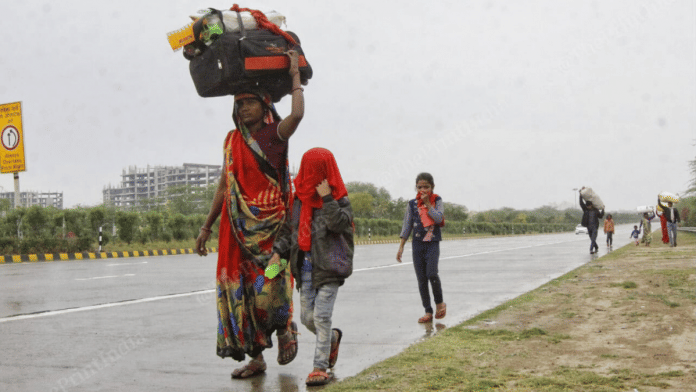A warm, congenial and quite the funny guy, my landlord Bharat happens to be a very friendly person. His passion for street food doesn’t quite sit well with his high blood pressure and diabetes. But apart from these small hiccups, life had been running smoothly for him — until the day he had a severe accident.
The doctors tried to stabilise him by giving medicines, IVs, but it turned out Bharat’s existing maladies were going to make his recovery quite a challenge.
Similarly, India has always suffered from some serious maladies — huge income inequalities, lack of rural medical infrastructure, a deeply patriarchal mindset, elections that are still fought over communal lines and a vast population in the lower-income bracket, to name a few.
So when the country was faced with the problem of Covid-19, the government took some stringent and drastic steps. A nationwide lockdown was imposed, with aggravated punishments for people violating rules of lockdown and attacking medical teams. We clapped and cheered for nurses and sweepers. Contributions were made to the newly constituted PM CARES Fund. Swadeshi companies like Patanjali attempted to find cures. Religious gatherings of specific communities were morally policed by a frenzied media and citizens alike.
And yet, India witnessed heart-wrenching scenes of hordes of migrant workers, suddenly deprived of their means of livelihood, forced to take long journeys on foot to reach their villages and towns. The GDP of the country tanked. Cases of depression and incidents of domestic violence were reported to be on the rise as were crimes by newly unemployed youth.
This poses a few relevant questions. Why was Bharat’s condition not improving? Because while the optics of the steps taken appeared good, they were not streamlined as per the country’s varied requirements.
India’s Covid response knee-jerk, too stringent, too late
The threat of the pandemic had been looming large since the start of this year, yet measures were taken quite late. A full nationwide lockdown, without any exceptions to areas with large industrial units or even relief packages for migrant workers, reflects the government’s knee-jerk reaction to the situation.
While PM Narendra Modi’s regular addresses to the nation are quite praiseworthy, they did not prove adequate to allay the public’s apprehensions towards medical testing and the disease. The opportunity should have been used to increase salaries of our medical professionals, put in place redressal mechanisms to combat domestic violence and curate relief packages for the distressed MSME sector, including small retail shopkeepers.
It is a tragedy of our times that the weakest and the most deprived sections of our society took the biggest hit in the pandemic, losing their means of subsistence. It is often said by jurists of criminal law that exaggerated punishments will never work as true deterrents. The situation could have been ameliorated by streamlining and filling in the gaps in existing laws and curbing the excess power of the executive.
Bharat has still put up a strong fight. People opened up their hearts and contributed generously to the relief funds, food was supplied to migrant workers through public-run kitchens and not-for-profit organisations. Our medical workers and the police force have been on the job tirelessly. There has been good adherence to the social distancing norms, but we must not think that the devil has been defeated. It is still there, growing stronger by the day. Even though we are emerging from the lockdown in a phased manner, this is not the time to get complacent. Preventive measures are the need of the hour.
A country standing on the strong pillars of Gandhian socialism, where the Supreme Court has been a vocal guardian of our fundamental right to life and dignity, where the right to health is regarded as a basic right guaranteed to every citizen, will surely emerge victorious from this scourge. But today, as citizens, we need to solemnly resolve to constitute our country into a place where there is transparency in the use of public funds by the state, where the fourth pillar of democracy, the media, has no place for those who push forth communal ideologies in place of actual policies that would lead to growth and development of the country.
The circumstances demand love and compassion for the weak and the most marginalised. So, it appears that my landlord, Bharat will soon get discharged. But he needs to look after himself from here on and he has a long way to go.
 Riya Goyal is a student of the National Law Institute University, Bhopal
Riya Goyal is a student of the National Law Institute University, Bhopal






